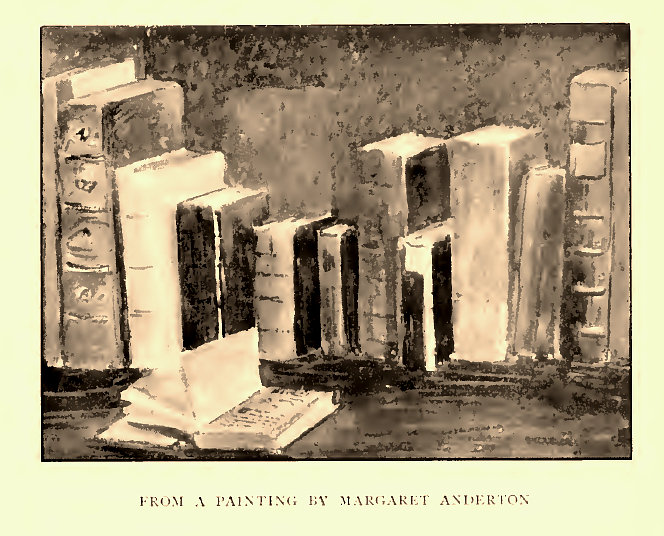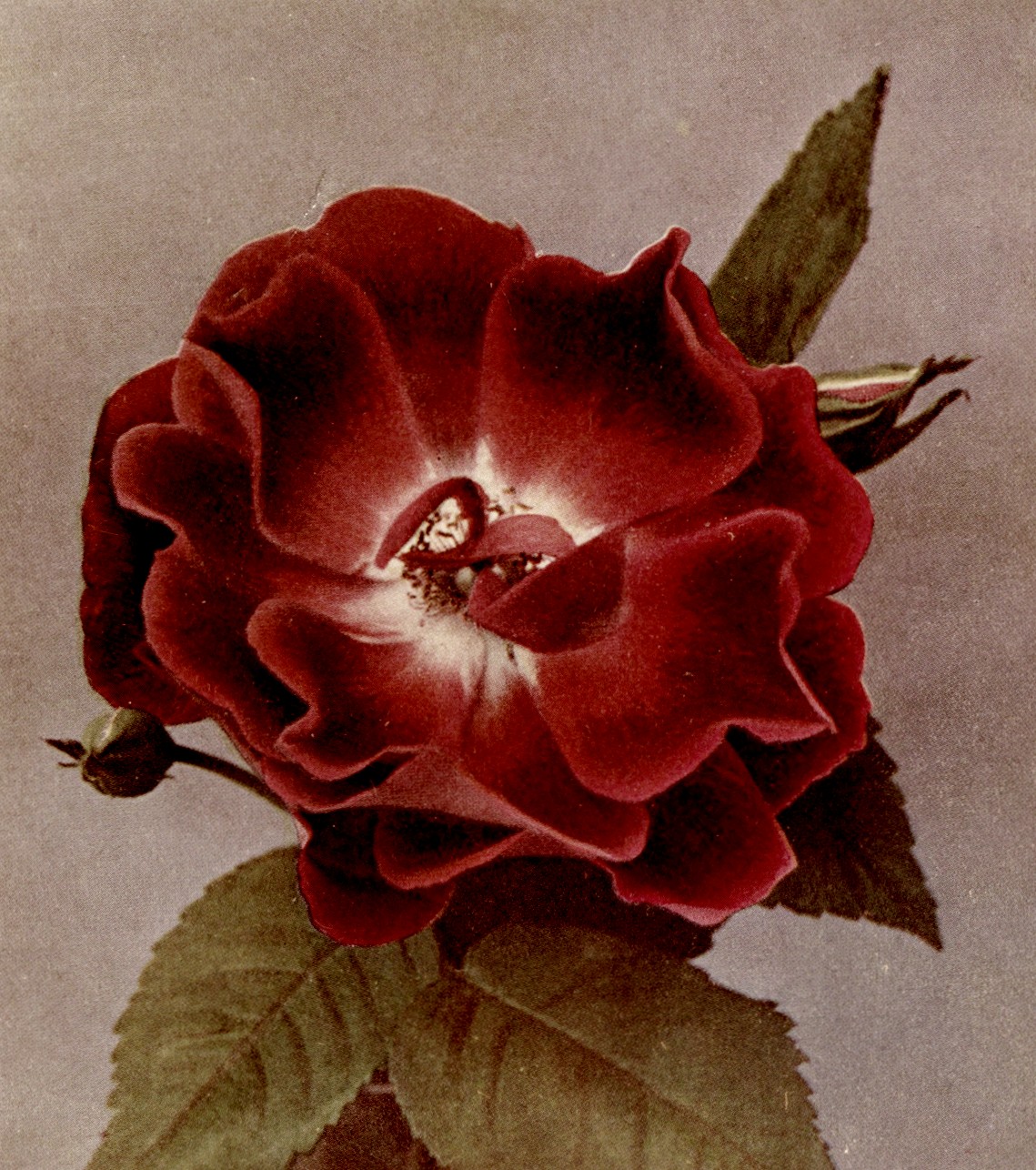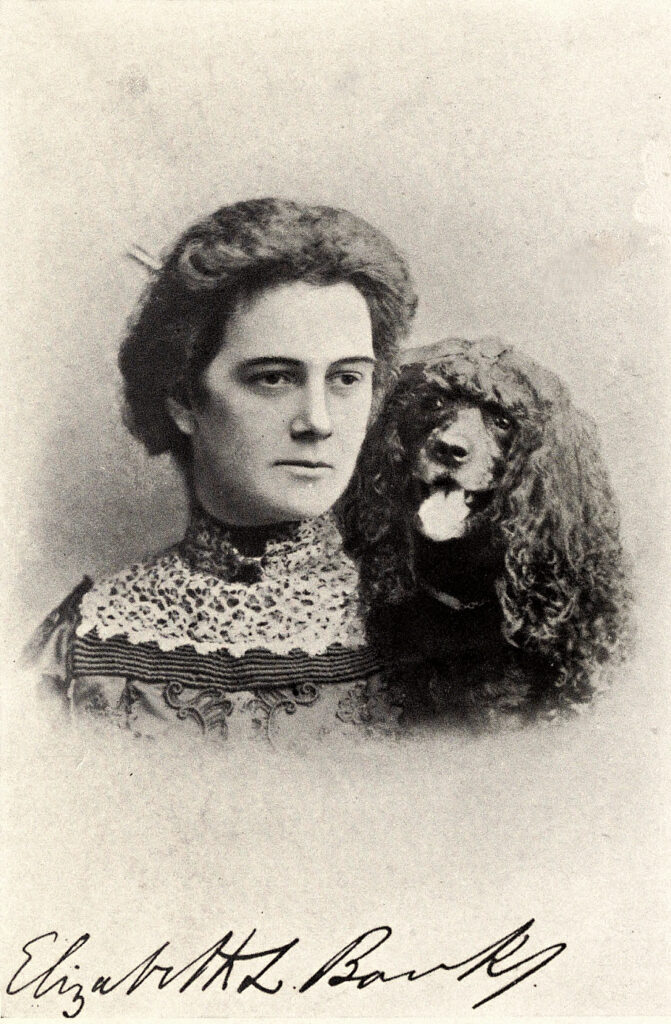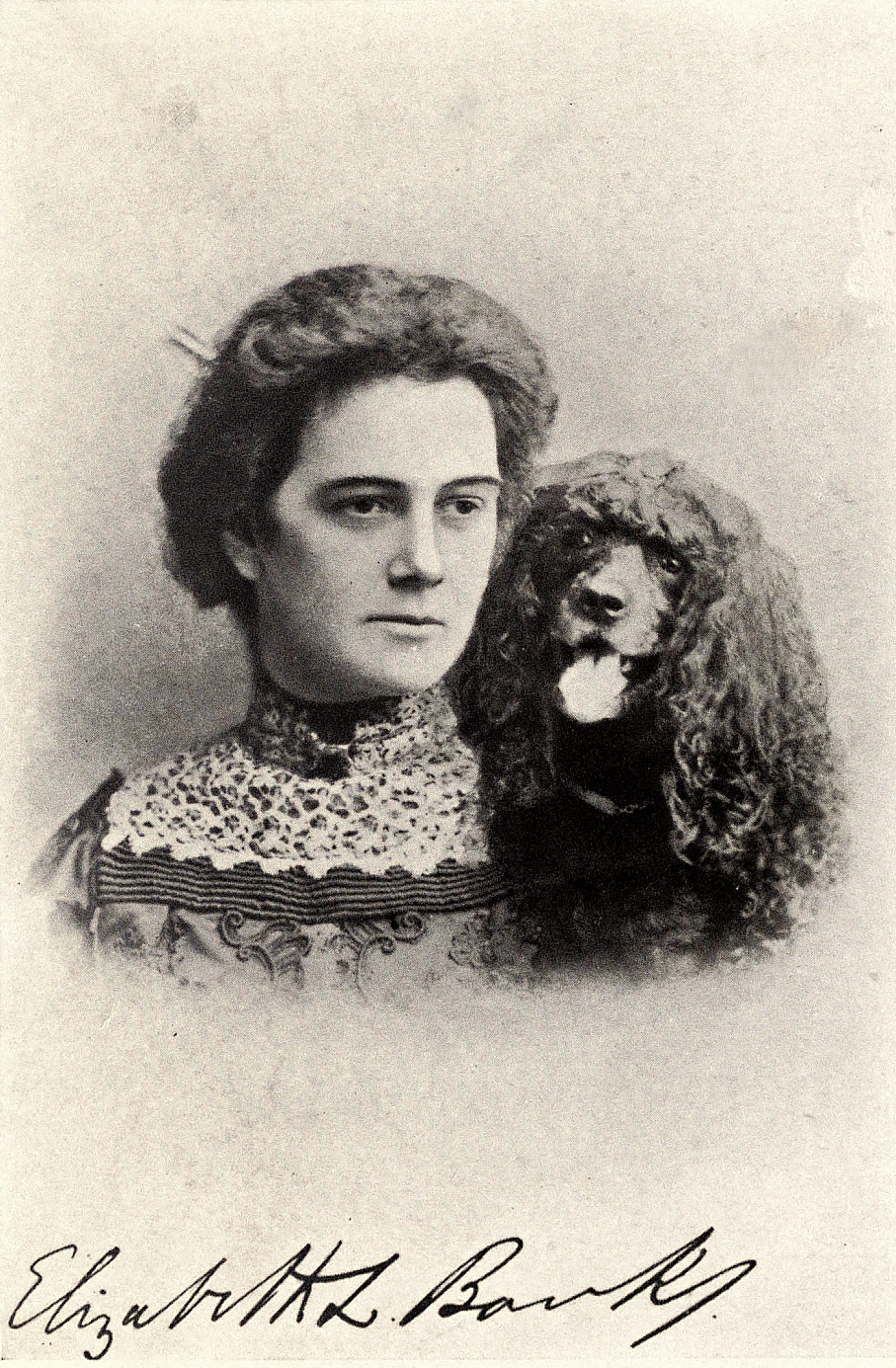Nel 1910, Basil Anderton, bibliotecario di Newcastle-upon-Tyne, pubblicò un volume dedicato alla sua grande passione per i libri: Fragrance Among Old Volumes. Essays and Idylls of a Book Lover (London, Kegan Paul, Trench, Trubner & Co., Ltd., 1910, printed by T. and A. Constable, Printers to His Majesty, at the Edinburgh University Press).
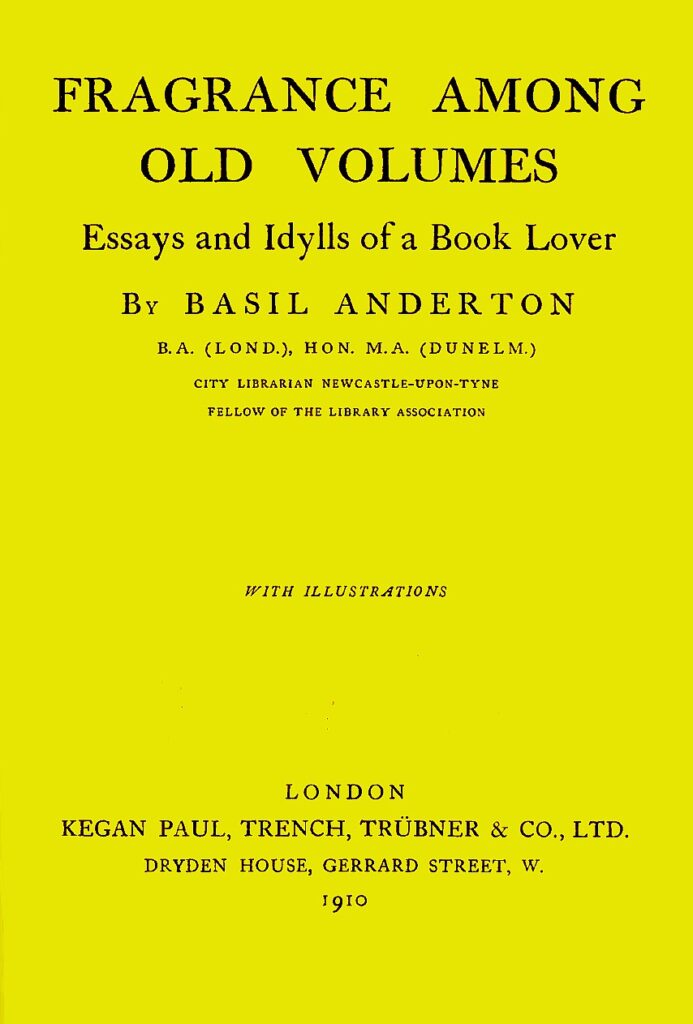
Il titolo – che evoca al primo impatto una sensazione familiare per chi vive quotidianamente tra scaffali e volumi – raccoglieva alcuni brevi testi, precedentemente apparsi sul Book Lover’s Magazine e sul Journal of Education (gli editori del primo periodico avevano anche concesso di riprodurre le illustrazioni degli articoli da loro pubblicati).
La varietà dei contributi qui raccolti non permette una definizione univoca di quest’opera, che può facilmente apparire disorganica. Infatti, se leggiamo il saggio dedicato al “grande fiorentino” Magliabecchi, bibliotecario del Granduca, o quello sugli ex libris disegnati da Thomas Bewick (1753-1828) – negli anni in cui la collezione Bewick veniva donata da John William Pease alla biblioteca pubblica di Newcastle-upon-Tyne – riconosciamo senza esitazione il curiosare dell’erudito tra le inesauribili occasioni che può offrire una ricca biblioteca.
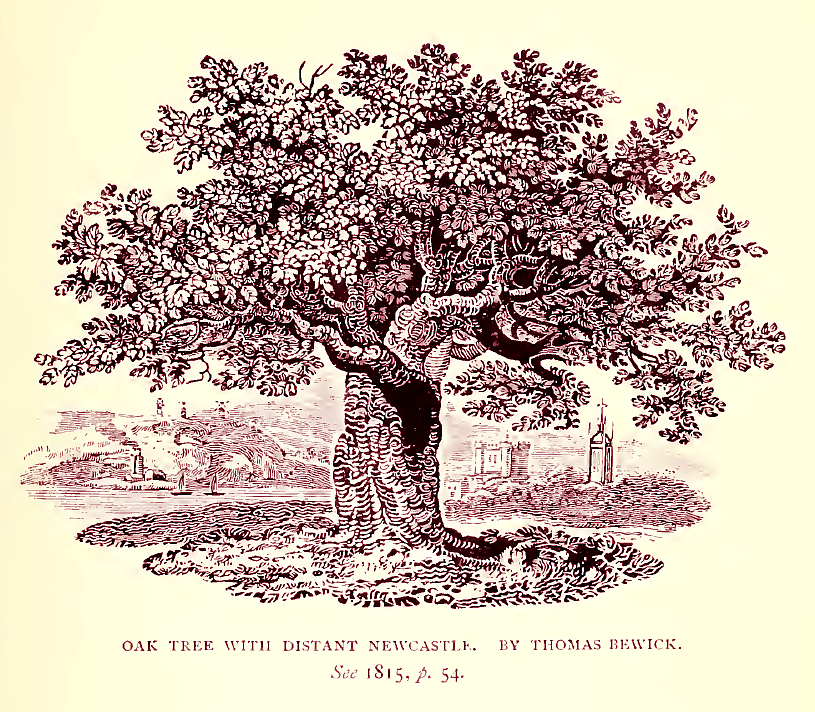
Altri testi, però, più inclini alla meditazione, appaiono di segno ben diverso e fanno della biblioteca la cornice entro la quale accogliere piccole storie intrise di grazia, pagine di buona letteratura o bozzetti coinvolgenti, estranei all’arido impianto saggistico visto altrove.
Riletto oggi, a oltre un secolo di distanza, il volume di Anderton conserva intatta la sua piacevolezza e quell’eterogeneità di stile e contenuto, lungi da essere una debolezza, esalta la pluralità di esperienze che solo i libri consentono di vivere.
Per apprezzarlo meglio, basta rileggere l’emblematico racconto, il terzo, che suggerisce il titolo al volume: Fragrance Among Old Books (pp. 29-32). Protagoniste sono due sorelle insegnanti, Miss Joan e Miss Dorothy, solite frequentare la biblioteca il sabato per raccogliere il materiale destinato ai loro studenti la settimana successiva. Anderton loda la loro felice naturalezza, la loro semplicità e l’amore per l’insegnamento, che si traduce in un impegno assoluto e generoso. Le piccole gioie quotidiane restano, però, inscalfibili: sempre pronta per loro c’è una teiera e, mentre Dorothy taglia una fetta di torta, Joan prepara il tè.
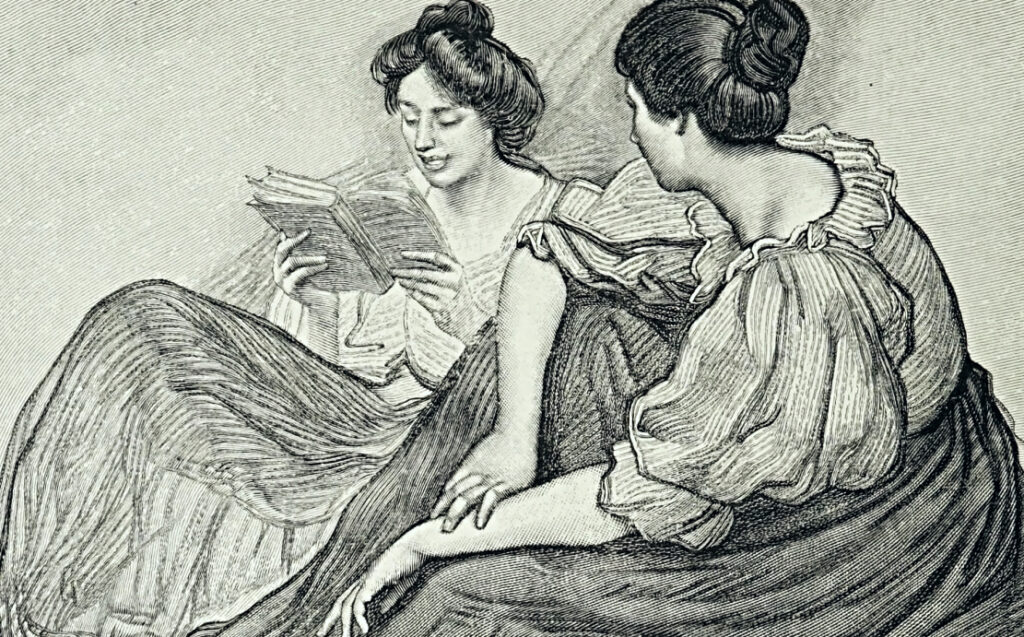
Fragrance Among Old Books
In one alcove of a certain library there seemeth ever to linger the scent of tea-roses. Two maiden ladies are wont to read there, mostly on Saturday afternoons, and once they were wearing each a sweet cluster of these flowers. Perchance some rarer balminess of air and sunshine had cleared their vision and compelled the unwonted purchase; for they never wore them before nor after – nor, indeed, any flowers at all. They live in the town, and have no fragrant garden where sun-lit flowers thrive; they are poor in this world’s goods, so perforce they cannot buy. Therefore we see them clad ever soberly in closefitting bonnets that, through some obscure tinge of colour, are just not black, and, if the weather is cold, in some quaint cape and woollen gloves. Their skirts are short for the cleaner walking; their boots stout and, it may be, patched; their hair smoothly braided. In such guise are these sisters, Miss Joan and Miss Dorothy, wont to come on Saturdays to their corner of the library, and to gather the substance of some lesson that they must give to their scholars next week; for they are schoolmistresses. In Chambers’s Encyclopædia they find great store of wealth, and ply their pencils and little note-books, whispering and nodding to one another. Or the librarian, seeing that they are perchance busied about the early explorers, may show them, in an old volume of travels, some strange tale of marvels in newly-discovered lands. With what rapt wonder do they read, with what whispered exclamations of awe and delight. But at last – well, ’tis hard in these voyages to sever fact from fancy – how shall they be sure which is which? How terrible if they made a mistake in class! So they turn once more to the terra firma of Chambers’s Encyclopædia, though Miss Dorothy, the younger, whose face has still hints of comeliness, heaves a little sigh at abandoning those bold sailors, and the rush o’ the sea, and that free, strong life. But she defers happily to her wiser sister, gladdened at heart for this glimpse into a bygone wonderland; and presently, their work done, they will get up, still nodding and smiling, and go home armed at all points for the lesson to their highest class – which consists of two big girls.
In one alcove of a certain library there seemeth ever to linger the scent of tea-roses. Two maiden ladies are wont to read there, mostly on Saturday afternoons, and once they were wearing each a sweet cluster of these flowers. Perchance some rarer balminess of air and sunshine had cleared their vision and compelled the unwonted purchase; for they never wore them before nor after – nor, indeed, any flowers at all.
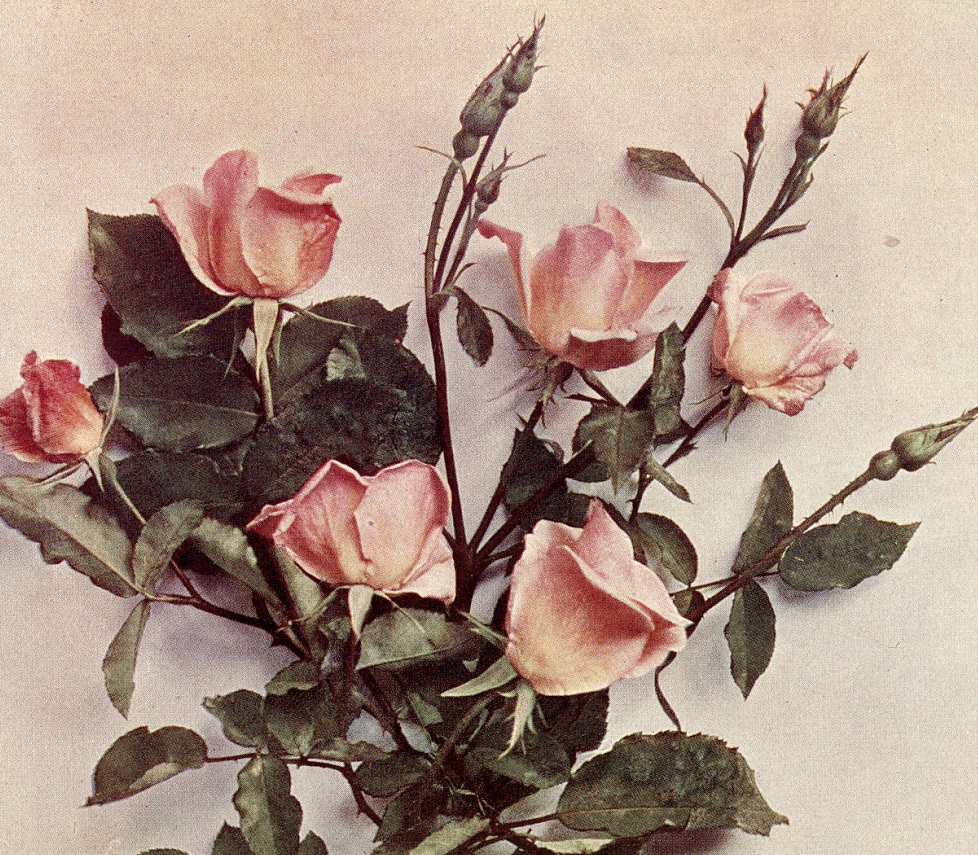
Teaching does not bring them riches; but if they know that they are poor, the knowledge afflicts them not. They work on with a happy naturalness, now and again going, note-book still in hand (for they have ever an afterthought for their school), to some free lecture in the town. One thing only about their school-work troubles them – and it is that they can spare so few pounds a term as salary to the teacher who helps them. Still, the teacher is generally loth to leave them, and grows to love them not a little. For gifts of charity they have but scanty pence. Therefore, that they be not found at the last empty-handed, they give of their toil; and on Sunday, after their week’s teaching, will don a somewhat wider lace-collar, and plod down twice a day to the Church rooms, in fair weather or foul, to teach once more in the Sunday School. Ye sweet-minded women! Small wonder if after this labour your faces look at times pale and pinched, and your eyes too alert and hungry. But if we would see them in a glow of hospitable happiness, we must call upon them in their home, and have a cup of tea with them. The tea-pot is ready to their hand, and while Miss Dorothy cuts into a little cake (kept in readiness for visitors, and only eaten privately when quite stale). Miss Joan brews the tea. So they spend their life – a life that, if simpleminded, hath yet a certain dignity and recollectedness; if austere towards themselves, is yet, within its means, generous to others; if laborious, yet taketh delight in the society of friends. And the fragrance of such a life is, one may fancy, not ill symbolised by the flowers they wore on that memorable day.
